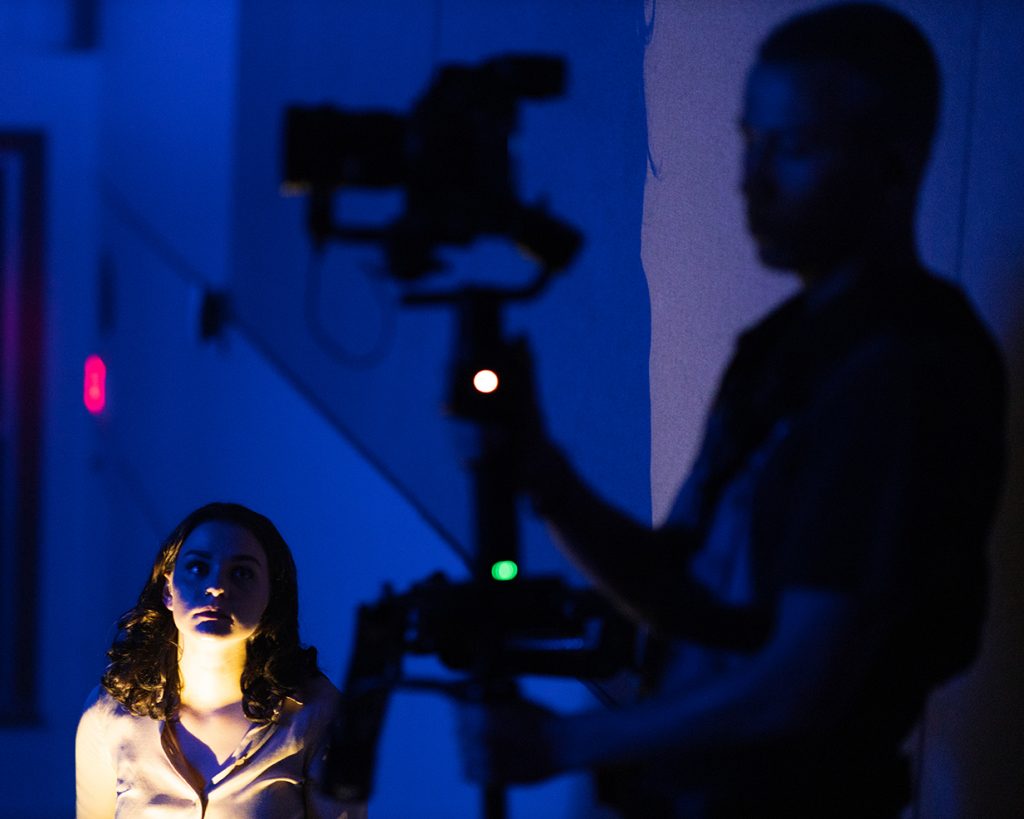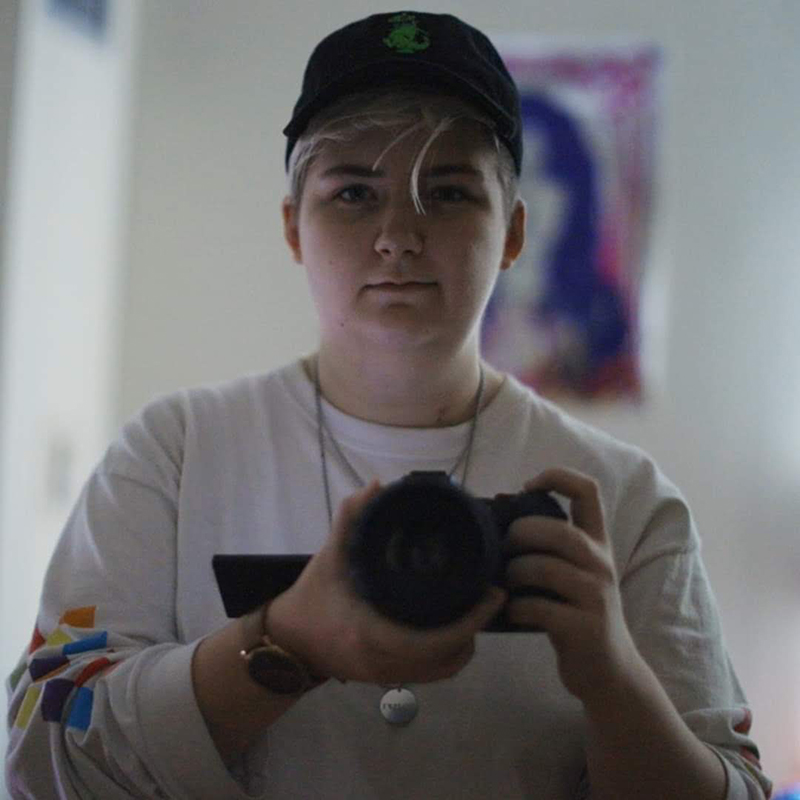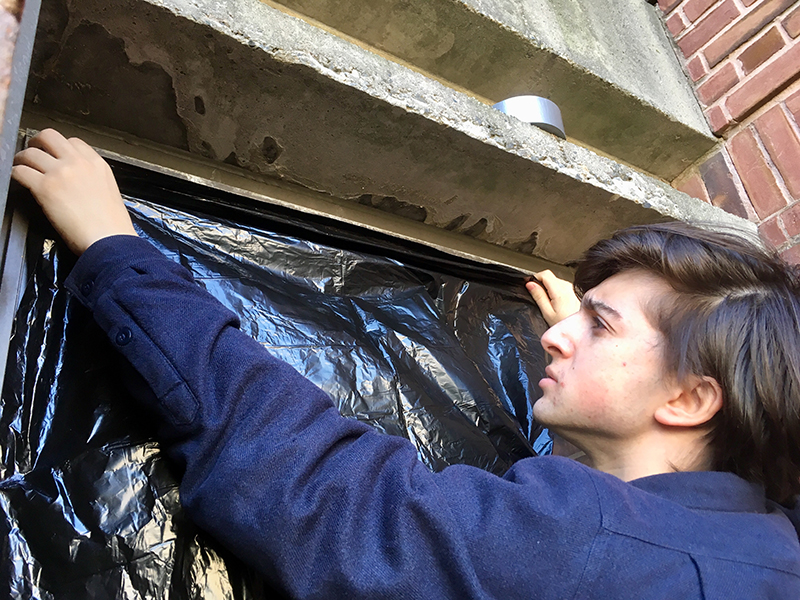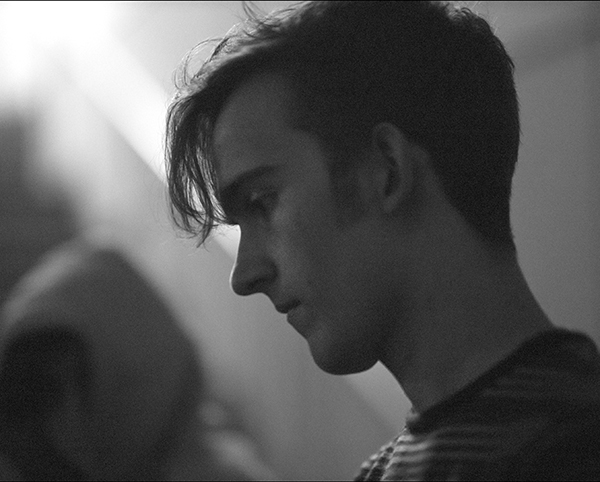#ClarkTogether
Student filmmakers undaunted by interruption of ‘Meridian’ shoot

Artists are nothing if not adaptable. No one has come to know this better than the team of students enrolled in the Screen Studies class, Genre Production Workshop: Horror, who spent the semester working on the short film, “Meridian” — but who were forced to change their approach because of COVID-19.
“Meridian” tells the story of a successful ASMR (autonomous sensory meridian response) YouTuber named Mara who is terrorized by a stalker. The film was written by Kailey McIlwrath ’20 and based loosely on characters created by Amelia Muratori ’19. McIlwrath, who also serves as cinematographer, and director Jack Rooney ’21 were already hard at work prepping the production at the conclusion of the fall 2019 semester.

McIlwrath and Rooney, both screen studies majors, admit to being horror novices before beginning the project. They cite writer-director Ari Aster as an inspiration, and used his films “Hereditary” (2018) and “Midsommar” (2019) as reference points while navigating the unpredictable waters of horror filmmaking.
High-brow horror wasn’t their only influence; “Beer Bad,” a episode from season four of Joss Whedon’s supernatural teen drama “Buffy the Vampire Slayer,” inspired a shot filmed in Mara’s bedroom. Rooney and McIlwrath were intent on making the film as scary as possible while using the resources available to them as students, relying on lighting, good acting, and spooky camera angles to replace slickly executed visual effects (although there might be more of those than one would expect).
While the film has yet to be completed, the trailer, edited by script supervisor Ben Frede ’20, with music by Henry Brown ’20 and Jack Letchinger ’20, offers a taste of the horror to come. Story continues after video
Frede said the crew’s role was to “help manifest the vision” of McIlwrath and Rooney, communicating with each about their expectations for a scene and finding solutions when these expectations did not align. Frede remembers one of their most unusual moments on set: taping trash bags over the window of a dorm room in the Johnson Sanford Center to block out the daylight for a scene that takes place late at night. “The whole room was transformed,” he recalls, “and looked incredible.”

The student filmmakers have missed similar small moments since Clark moved its courses to a distance-learning format because of the pandemic. Despite their frustrations that filming has been postponed, new developments with the project excite them. McIlwrath is looking forward to rewriting “Meridian’s” final scenes as they move toward completion, perhaps over the summer and into fall. “I think ‘Meridian’ is going to end up much stronger now that I know everyone’s strengths and what we’re able to do with the camera and lights,” he says.

Rooney agrees that the script changes will allow the story to become something that “feels more our own, which is exciting artistically.” He points to director Werner Herzog’s assertions that “the moment a plan is thrown out is where artistry shows through” and the “vision gets concentrated and boiled down and found.”
Interruptions aside, the artistic vision of “Meridian” undoubtedly will be found in the persistence and passion of its creators.



